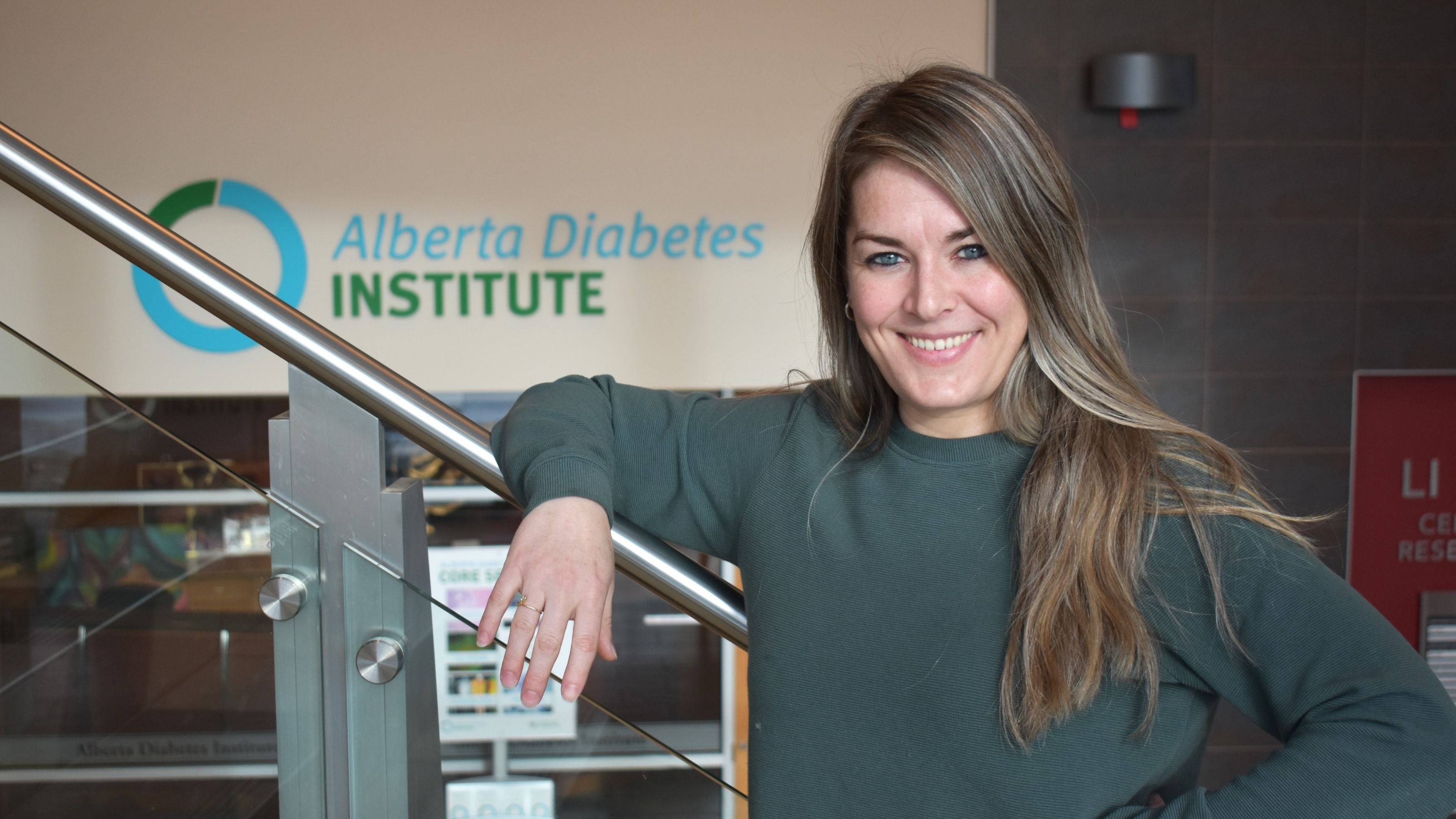In this week’s Innovator Spotlight, Caroline Richard, registered dietician and associate professor, Department of Agricultural, Food and Nutritional Science, discusses her interest in how dietary patterns like the ketogenic diet or foods like kefir can counteract some of the immune dysfunction observed in obesity and diabetes. Her research could eventually result in food-based recommendations like increasing the daily intake of choline to improve immune function.
How do you describe your work to people who don’t work in your field?
I am a registered dietitian (RD) and a researcher who studies how nutrition can improve the immune system in the context of chronic diseases including obesity and type 2 diabetes. I also teach the next generation of RDs at the University of Alberta.
What’s one big problem you want to solve through your work?
The immune system regulates inflammation and plays a key role in the pathogenesis of chronic diseases. Obesity and its metabolic complications such as diabetes increase inflammation and the risk of infection. Yet, we still know little about how nutrition can improve the immune system in the context of chronic diseases. My research focuses primarily on understanding how nutrition can mitigate obesity-related immune dysfunctions with the ultimate aim of providing clinical evidence-based nutritional recommendations for the management of obesity-related immune dysfunction. I am particularly interested in determining how specific dietary patterns like the ketogenic diet, foods like kefir as a fermented food or essential nutrients like choline, found in eggs, can precisely counteract some of the immune dysfunction observed in obesity and diabetes.
What does the word “innovation” mean to you?
To me, "innovation" represents the process of creating something new or improving existing ideas, products, processes or methods in a way that brings value, solves problems or addresses needs. It involves creativity, experimentation and the application of new perspectives or technologies to develop novel solutions. Innovation isn't just about invention; it's also about practical implementation and the positive impact it brings to individuals, societies, industries or the world at large. In my field, it means creating accessible dietary solutions to help people improve their immune systems when they are living with chronic diseases. A simple affordable solution could be to increase egg consumption at the population level to meet the adequate intake of choline which is needed for a properly functioning immune system.
What’s been your biggest a-ha moment — in life or work — so far?
COVID-19 was the biggest surprise for me. I was starting my independent research career along with having ongoing pre-clinical studies and clinical trials running when the pandemic started. Conducting research during a pandemic was not easy, but we learned a lot from it and improved our working protocols as a result.
How do you or your team come up with your best ideas?
During our lab meetings. We create a collaborative environment in which we brainstorm to come up with solutions as a group. I have a diverse lab and everyone has their strengths and contributes in meaningful ways.
What’s your favourite thing about working at the U of A?
My colleagues and my team… and the proximity to the river valley to run! I like the people I work with and the academic freedom of being able to go for a run at lunchtime.
Do you have a role model at the U of A? How have they influenced you?
Catherine Field! She was my post-doc supervisor and is now my colleague. From the moment I arrived in Alberta, I felt like I had found a second family. Her research team was so welcoming and she showed what Edmonton had to offer. She eventually convinced me to stay.
There is no word to describe how good of a mentor Catherine is. She was supportive in every aspect and gave me the freedom and autonomy to grow into an independent researcher. She pushed me out of my comfort zone and encouraged me to develop a strong network. She provided me with the learning opportunities I needed to develop teaching and mentoring skills and become an academic. Catherine cares deeply for her students, and she is still the number one person I go to when I have questions.
In Shape, the University of Alberta commits to having a positive impact on our students and staff, our communities and the communities we serve here in Alberta and around the world. How does the work you do create impact?
The outcomes of my program will have significant health implications for Canadians. Understanding what the main drivers of immune dysfunction in obesity-related chronic diseases are, will allow for more targeted and personalized approaches to precisely improve the immune system in different health conditions. My program will also provide evidence to support food-based recommendations. For instance, my research could eventually result in simple nutritional recommendations to increase dietary intake of choline through either foods (e.g., egg or dairy) or supplements to improve immune function. This is important since weight loss, although known to improve inflammation and the immune system has resulted in little long-term success. Therefore, there is an urgent need to identify other effective strategies for the management of obesity co-morbidities. My research program is well-aligned with the strategic research plan of the U of A to achieve excellence in key Signature Areas including Precision Heath and Food and Bioresources as it relates to nutrition and human health.
What’s next for you? Do you have any new projects on the horizon?
Eventually, I would like to move my pre-clinical research on choline to the clinical stage by going to randomized controlled trials on choline-rich food supplementations. I’d like to see if we can improve the immune system in the context of obesity by improving choline intake at the population level.

